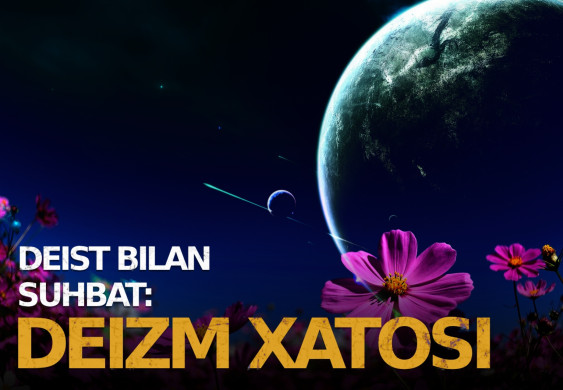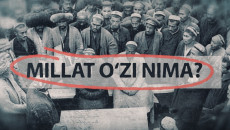What is a nation?
We talk a lot about "nation", "nationality", "national values", "national customs", but do we use these concepts correctly? What should we really understand by the term "nationality"? What are the characteristics of our nation? Today we are looking for answers to these questions.
Concepts such as "nation", "identity", "value" and "culture" can be interpreted differently depending on the worldview of representatives of different fields or individuals. For example, one scientist may interpret the concept of "nation" as "ethnic group" or "ethnopolitical unit", while another scientist may interpret it as "cultural unit".
Let's first look at the origin of the word "nation". This word is derived from the ancient Hebrew and Aramaic word "milal" which means "to speak, tell", and the word "milla" means "word, speech".
Similarly, the word "millat" derived from the Arabic word "imla" which means "to write" is also used in the sense of "based on or following what is heard, recorded, read". Mahmoud Zamakhshari, a mature scholar of Arabic linguistics and lexicology who came out of our country, also used this word in the sense of "walking, following path".
Therefore, the word "nation" has long been used to express "a marked path, a drawn line, a followed way of life." It is from this point of view that the eastern thinkers in their time used the terms "Islamic nation", "Christian nation", "Jewish nation", "pagan nation" to describe the order, social norms, beliefs and teachings of society and individuals, or rather religion. .
In the Holy Qur'an, this word is also used for Prophets Abraham, Isaac and Jacob. The religion that was revealed to our Prophet Muhammad, may God bless him and grant him peace The phrase "the nation of Abraham" is also defined by the adjectives of Hanifism and Righteousness. In one verse, Christianity is mentioned as "the last nation", while in other verses, the word "nation" is also used for false religions.
In Hadith Sharifs, the word "nation" also means "innate belief", "nature and nature". An example of this is the hadiths about the fact that every child is born in a single nation - fitrah, but later his parents raise him in a different faith.
In Islamic literature, the expression "nation" is defined as "the books sent by Allah Almighty for His servants and the principles established by the prophets" and means religion and Sharia.
The great Islamic thinker Abu Hamid Muhammad Ghazali says that "in order for the existence of the human race to continue, it needs to live in a society based on a specific, fair and unifying basis, where mutual assistance, protection, behavior and mutual relations are correct." Imam Ghazali emphasized that the foundations that form such a society and establish it are called "nation".
Muhammad Shahristani wrote about the need for people to live together in order to live in this world and prepare for the hereafter, that this social structure should be in a form that provides mutual support and protection, and that it is called "nation".
In conclusion, "nation" refers to the basic rules, traditions, values, social norms and way of life that can unite people around them and ensure its social existence. Accordingly, it is more correct to call the people living in this society not "nation", but "community", "people", "ummah" or "compatriot". A nation is a road, a compatriot is a companion on that road.
Also, the term "nation", which appeared in the West since the end of the nineteenth century, was first translated into Uzbek as "firqa", "category", but later it became customary to express it with the word "millat" in the modern Uzbek language.
Thus, the term "nation" moved away from its original meaning in our classical sources and became a fully social and political concept.
So, what do you think the Uzbek nation should be united around today? What is the best way for us to follow, what should the nation be? What is our path - our nation, and who are our companions on this path - our fellow citizens?
© History and politics














